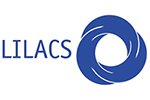ISSN Online: 2177-1235 | ISSN Print: 1983-5175
Showing of 1 until 1 from 1 result(s)
Search for : Flavio Luiz Yarshell
Legal therapeutic forms for litigation between doctors and patients
ABSTRACT
Highly empowered by knowledge and available information, patients are no longer a passive part of the patient-physician relationship but become more challenging and argumentative about their diagnoses and prescribed therapies. Part of the issues, especially regarding medical complications, may weaken this relationship, a phenomenon that has been described to enhance judiciary litigation against physicians worldwide. With this trajectory, there was a distance in this medical relationship. In this perspective, a wedge has been placed within the patient-physician relationship, delineating on one side a general public more suspicious of the services provided, and on the other side, a more worn-out doctor, with a defensive stance, hyper-specialized and consequently more technical and formalistic than humane and empathic. The reinforcement of medical information and communication between the parts strongly signal what is considered legal prophylaxis in medical services. Even so, complications do occur, and different attitudes do exist in the face of what may have happened. When this happens, one can count on a large legal system called "multi-doors," able to accommodate the necessary contingency, depending on the diagnosis in the relations between the parts, for a legal therapy appropriate to each particular situation. Such "legal therapy" can occur by self-composition, as are the established methods of Mediation and Conciliation, no longer foreign to the health area, or by heterocompositive methods, among which are the already well-known methods of judicial adjudication and Arbitration.
Keywords: Health; Heath/legislation & jurisprudence; Physician-patient relations; Jurisprudence, medical; Arbitration.
RESUMO
Com a maior possibilidade de conhecimento e acesso a informações, o paciente deixa de ser uma parte passiva no relacionamento médico-paciente, sendo a cada dia mais contestador e argumentativo a respeito de seus diagnósticos e terapêuticas instituídas. Parte destes questionamentos, principalmente no que diz respeito a intercorrências médicas, acaba por desgastar esta relação, fenômeno que tem sido descrito como um potencializador na judicialização dos conflitos médicos no mundo. Com esta trajetória, assistiu-se de perto a um afastamento nessa relação médico-paciente, não apenas com um público geral mais desconfiado das prestações de serviços, mas também um médico mais desgastado, com posturas defensivas, hiperespecializado e, consequentemente, mais técnico e formalista do que humano e empático. O reforço na informação médica e na comunicação entre as partes é um sinalizador forte no que se pensa de uma profilaxia jurídica nas prestações de serviços médicos. Ainda assim, intercorrências ocorrem, e posturas diversas existem frente ao ocorrido. Quando isso ocorre, temos hoje a possibilidade de contar com um grande sistema jurídico dito "multiportas", capacitado a abrigar a contingência necessária, a depender do diagnóstico nas relações entre as partes, para uma terapia jurídica adequada a cada situação em particular. Tal "terapêutica jurídica" pode dar-se por autocomposição, como os consagrados métodos de mediação ou conciliação, já não estranhos à área da saúde, ou por métodos heterocompositivos, e, entres estes, a já conhecida tutela Estatal e a Arbitragem, por autonomia da vontade das partes desde que o direito a ser discutido seja disponível.
Palavras-chave: Saúde; Saúde/legislação & jurisprudência; Relações médico-paciente; Jurisprudência médica; Arbitragem.
 All scientific articles published at www.rbcp.org.br are licensed under a Creative Commons license
All scientific articles published at www.rbcp.org.br are licensed under a Creative Commons license






